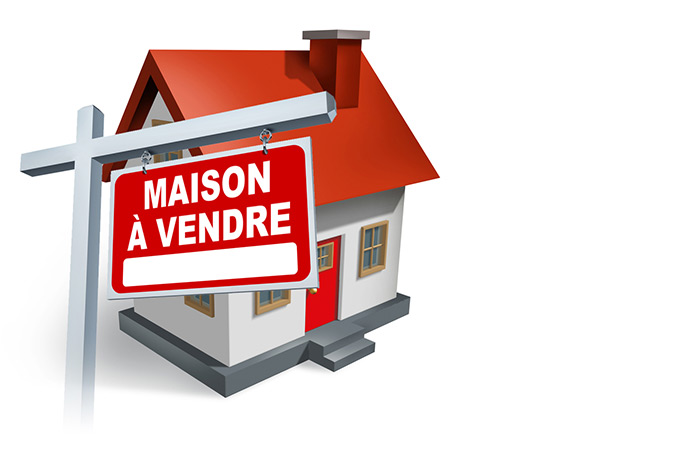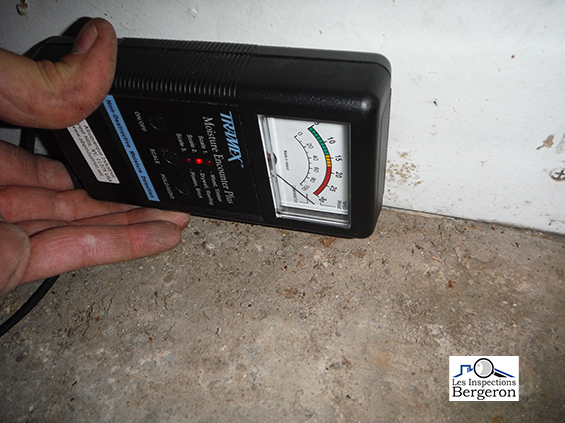Pre-sale inspection
Do you want to sell your house, multi-unit or condo and at the best price possible and quickly? An inspection before listing your home on the market will give you time to make some corrections at the right price.
You have put your house up for sale. A few weeks later, a purchase offer is presented. Once the offer is accepted and signed, then comes the home inspector for the pre-purchase inspection to check the condition of your home. The inspector identifies important issues such as excessive moisture in the basement walls. The condition of foundation drainage should be checked by a specialist. In addition, water infiltration from the roof is discovered. The potential buyer who was taking measurements in different rooms was already seeing himself in your house. Doubt settles in and the worst scenario happens: he withdraws his offer!
A house in good condition sells better! In the age of home staging that catches the eye of potential buyers, the condition of the building is even more important for the sale of your home. Yet, a significant number of buildings present significant problems that often the seller was unaware.

What is a pre-sale inspection?
The pre-sale inspection is similar to the pre-purchase inspection but allows the owner to carry out the work or corrective suggested by the inspector to sell at the best price and gives you more time to find the right contractor and at the right price. In addition, there will be no surprises during the pre-purchase inspection following the purchase offer. This step also demonstrates the good faith of the seller.
The pre-sale inspection is an excellent tool for the seller to guard against recourse following the purchase of the house. Although the inspection report elaborates all the corrections to be made or problematic, the seller may decide to make the corrections or simply reveal the facts to the buyer to minimize the risks that the sale falls after the pre-purchase inspection done by the home inspector of the buyer.
This type of inspection gives you an advantage over other properties on the market, simplifies trading, reduces the risk that the buyer withdraws his offer after the inspection and may even convince the buyer to withdraw the inspection condition. By opting for a pre-sale inspection, you demonstrate that you have been careful and diligent in case of lawsuit and you demonstrate that you are an honest and serious seller to the potential buyer. For a hassle-free sale, have a pre-sale inspection done by Les Inspections Bergeron.
Will all components be verified?
Yes, anything visible and accessible will be verified and noted in the inspection report. This is the same principle as a pre-purchase inspection. The inspection covers all the systems that your building contains and a detailed report with pictures will be given to you within 48 hours of the inspection.
Our building inspections cover:
- The foundations
- The roof
- The structure
- Exterior and interior siding
- Plumbing
- Electricity
- Heating systems
- Air conditioning
- Insulation and ventilation
- Empty space and crawl space
- Exterior of the building
- Interior of the building
- Security issues
- Landscaping
- Doors and windows

Is it recommended to have an inspection even if I do not want to sell?
Do you maintain your vehicle according to the recommendations of your mechanic or dealer? When you learn that your brakes are due to be changed, what do you do? It's the same for your house. Is there a professional to guide you and warn you? Many houses have significant deficiencies, would you like them to be discovered quickly? A complete inspection report is your maintenance guide to keep your home in a better condition. This avoids expensive surprises through prevention and maintenance.
Pre-sales inspection is a smart and profitable investment!
Several clues can lead to believe in the presence of a hidden defect, during an inspection. Better to be informed before receiving a purchase offer.
1726. The seller is bound to guarantee to the buyer that the good and its accessories are, at the time of the sale, free from latent defects which render it unfit for the use for which it is intended or which so diminish its utility that the buyer would not have bought it, or would not have given so high a price, had he known it.
He is, however, not obliged to guarantee the latent defect known to the buyer nor the apparent defect; is apparent the vice that can be ascertained by a prudent and diligent buyer without the need to resort to an expert.
